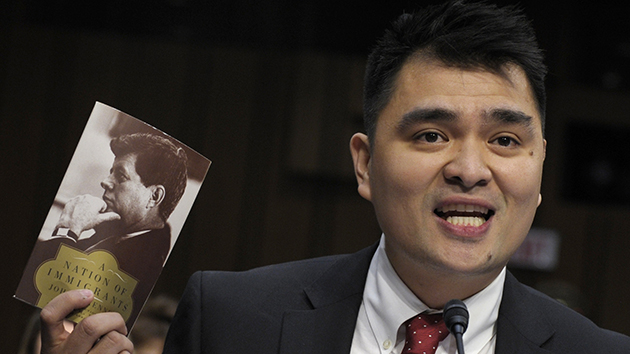We asked a range of authors and creative types to name books that bring solace or understanding in this age of rancor. More than two dozen responded. Here’s what the Peruvian American novelist Daniel Alarcón, who is also an executive producer for NPR’s Radio Ambulante, had to share with us.

Latest book: At Night We Walk in Circles
Also known for: Lost City Radio
Recommended reading: Nazi Literature in the Americas was one of the first of Roberto Bolaño’s books I ever read, and for that reason alone I remember it fondly. It’s hilarious, disturbing, bizarre, humane—a faux encyclopedia of failed attempts to use art to justify fascism. Those who’ve read Distant Star will recognize the themes, and even a few of the characters.
James Baldwin, The Last Interview: No one is as trenchant and unforgiving and sharp about race and love and class in America as Baldwin.
The Handmaid’s Tale, by Margaret Atwood: Sometimes I think dystopian literature is the only literature we can write these days. That Atwood’s masterpiece feels so resonant today, more than 30 years after it was published, is singularly depressing. Read it as a cautionary tale.
Illustration by Allegra Lockstadt
______________
The complete series: Daniel Alarcón, Kwame Alexander, Margaret Atwood, W. Kamau Bell, Ana Castillo, Jeff Chang, T Cooper, Michael Eric Dyson, Dave Eggers, Reza Farazmand, William Gibson, Mohsin Hamid, Piper Kerman, Phil Klay, Alex Kotlowitz, Bill McKibben, Rabbi Jack Moline, Siddhartha Mukherjee, Peggy Orenstein, Wendy C. Ortiz, Darryl Pinckney, Joe Romm, Karen Russell, George Saunders, Tracy K. Smith, Ayelet Waldman, Jesmyn Ward, and Gene Luen Yang.















